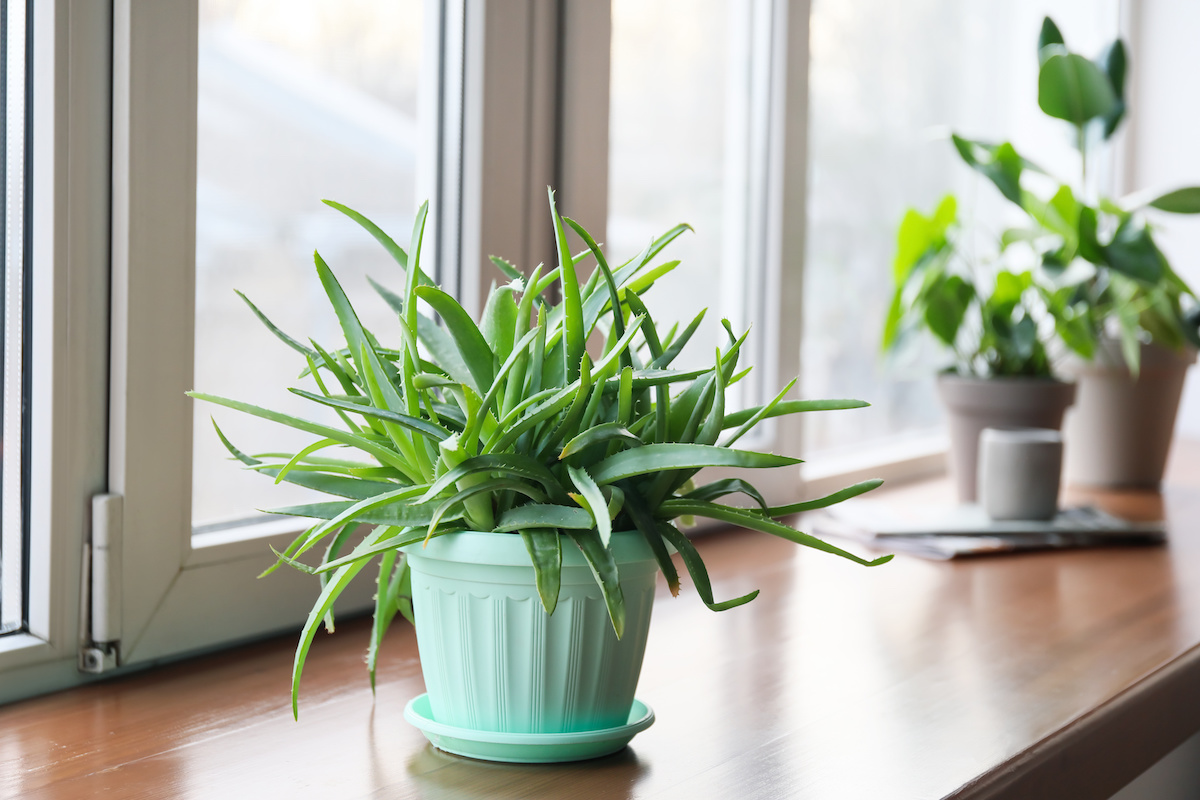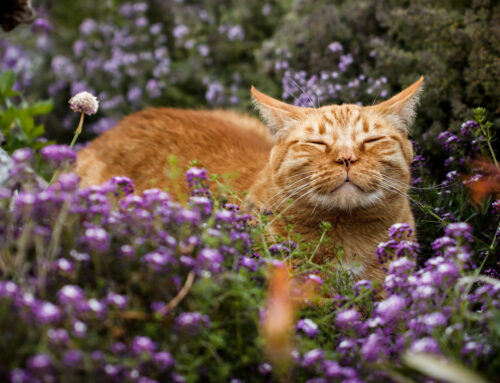As pet owners, we do everything we can to ensure our furry friends are safe, happy, and healthy. From feeding them the right diet to keeping them away from household hazards, their well-being is always a top priority. However, one danger that often goes unnoticed is the presence of toxic plants in and around our homes. Many common houseplants, garden flowers, and even outdoor vegetation can pose serious risks to pets if ingested or even touched.
At Animal Care Center, we are committed to helping pet owners create a safe environment for their animals. In this guide, we will discuss the most dangerous plants for pets, signs of poisoning, and what to do if your pet is exposed to a toxic plant.
Common Household Plants That Are Toxic to Pets
Many people love having greenery inside their homes, but some of the most popular houseplants can be extremely dangerous to pets. Here are a few to watch out for:
1. Lilies (Toxic to Cats)
Lilies are beautiful flowers often found in bouquets and gardens, but they are incredibly toxic to cats. Even a small amount of pollen or a few leaves can cause kidney failure.
- Symptoms of Lily Poisoning in Cats:
- Vomiting
- Lethargy
- Loss of appetite
- Increased thirst and urination, followed by decreased urination
2. Aloe Vera
While aloe vera is known for its soothing properties for human skin, it can cause gastrointestinal upset in pets if ingested.
- Symptoms of Aloe Vera Poisoning:
- Vomiting
- Diarrhea
- Lethargy
3. Pothos (Devil’s Ivy)
This popular indoor plant is easy to care for but contains insoluble calcium oxalates, which can cause irritation and swelling in pets’ mouths and throats.
- Symptoms of Pothos Poisoning:
- Drooling
- Oral irritation
- Difficulty swallowing
4. Sago Palm
Sago palms are a favorite decorative plant, but they contain cycasin, a toxin that can cause severe liver damage and even death in pets.
- Symptoms of Sago Palm Poisoning:
- Vomiting
- Seizures
- Liver failure
5. Dieffenbachia (Dumb Cane)
Dieffenbachia plants contain compounds that cause extreme irritation in a pet’s mouth and throat.
- Symptoms of Dieffenbachia Poisoning:
- Drooling
- Swelling of the mouth and throat
- Difficulty breathing

Outdoor Plants That Can Harm Pets
Your backyard or neighborhood park may contain plants that can be dangerous to your pets. Here are some outdoor plants to be aware of:
1. Oleander
Oleander is a common shrub with pretty flowers, but it is extremely toxic to both dogs and cats. Ingesting even a small amount can be fatal.
- Symptoms of Oleander Poisoning:
- Drooling
- Irregular heartbeat
- Tremors
2. Azaleas and Rhododendrons
These flowering shrubs contain toxins that affect a pet’s cardiovascular system and nervous system.
- Symptoms of Azalea Poisoning:
- Vomiting
- Weakness
- Coma in severe cases
3. Foxglove
Foxglove contains chemicals that affect the heart, leading to life-threatening symptoms.
- Symptoms of Foxglove Poisoning:
- Irregular heartbeat
- Seizures
- Collapse
4. Daffodils
Daffodils may brighten up your garden, but are toxic to pets because they contain lycorine. This can cause severe digestive distress in pets.
- Symptoms of Daffodil Poisoning:
- Abdominal pain
- Vomiting
- Drooling
5. Tomato Plants
While ripe tomatoes are generally safe, the stems and leaves can be toxic to pets because they contain.
- Symptoms of Tomato Plant Poisoning:
- Dilated pupils
- Weakness
- Confusion
Signs That Your Pet Has Ingested a Toxic Plant
If your pet has come into contact with a poisonous plant, then symptoms can range from mild irritation to life-threatening conditions. Look for these warning signs:
- Vomiting or diarrhea
- Excessive drooling
- Lethargy or weakness
- Difficulty breathing
- Swelling of the mouth, tongue, or throat
- Seizures or tremors
- Loss of coordination
- Irregular heartbeat
If you suspect your pet has ingested a toxic plant, then seek veterinary care immediately. Prompt treatment can make all the difference in your pet’s recovery.
What to Do If Your Pet Ingests a Toxic Plant
Step 1: Identify the Plant
If possible, take a picture or bring a sample of the plant to your vet. Knowing the specific plant can help determine the appropriate treatment.
Step 2: Contact Your Veterinarian
Call your vet or an emergency animal clinic right away. Animal Care Center is here to assist in any pet emergency.
Step 3: Do Not Induce Vomiting (Unless Advised)
Some toxins can cause more harm if vomited. Always follow your vet’s instructions before attempting any treatment at home.
Step 4: Monitor Your Pet’s Symptoms
While waiting for veterinary care, keep an eye on your pet’s behavior and comfort them as much as possible.

How to Protect Your Pets from Toxic Plants
1. Choose Pet-Safe Plants
Before bringing a plant into your home, research whether it’s safe for pets. Some great pet-friendly options include:
- Spider plants
- Boston ferns
- Areca palms
- Bamboo
- Calathea
2. Keep Toxic Plants Out of Reach
If you must have a toxic plant in your home, place it in an area where pets cannot access it. Hanging baskets or high shelves can help keep curious pets away.
3. Train Pets to Avoid Plants
Teaching your pet to stay away from plants can prevent accidents. Use positive reinforcement to encourage good behavior.
4. Monitor Outdoor Play Areas
Check your yard for potentially dangerous plants and remove them if necessary. Be mindful of what your pet might encounter on walks as well.
5. Know Emergency Contacts
Keep your vet’s contact information handy, along with the ASPCA Animal Poison Control Center (888-426-4435) for emergencies.
How Animal Care Center Can Help
At Animal Care Center, we are dedicated to keeping your pets safe and healthy. Our team provides expert veterinary care, emergency services, and guidance on pet safety. Whether you need a routine check-up or urgent care due to plant poisoning, we are here to help.
Our Services Include:
- Emergency Veterinary Care – Quick response to poisoning cases.
- Routine Check-ups – Preventive care to keep your pet healthy.
- Nutritional Counseling – Advice on safe and healthy eating habits for your pet.
- Behavioral Training Advice – Helping you train your pet to avoid dangerous plants.
Final Thoughts
Protecting your pets from dangerous plants is an essential part of responsible pet ownership. By being aware of toxic plants, recognizing the signs of poisoning, and knowing what steps to take in an emergency, you can help keep your furry friends safe.
If you have any concerns about your pet’s health or need advice on creating a pet-friendly home, then contact Animal Care Center today. We are always here to support you and your beloved pets.
Schedule an appointment with us and let’s work together to keep your pets safe and healthy!






